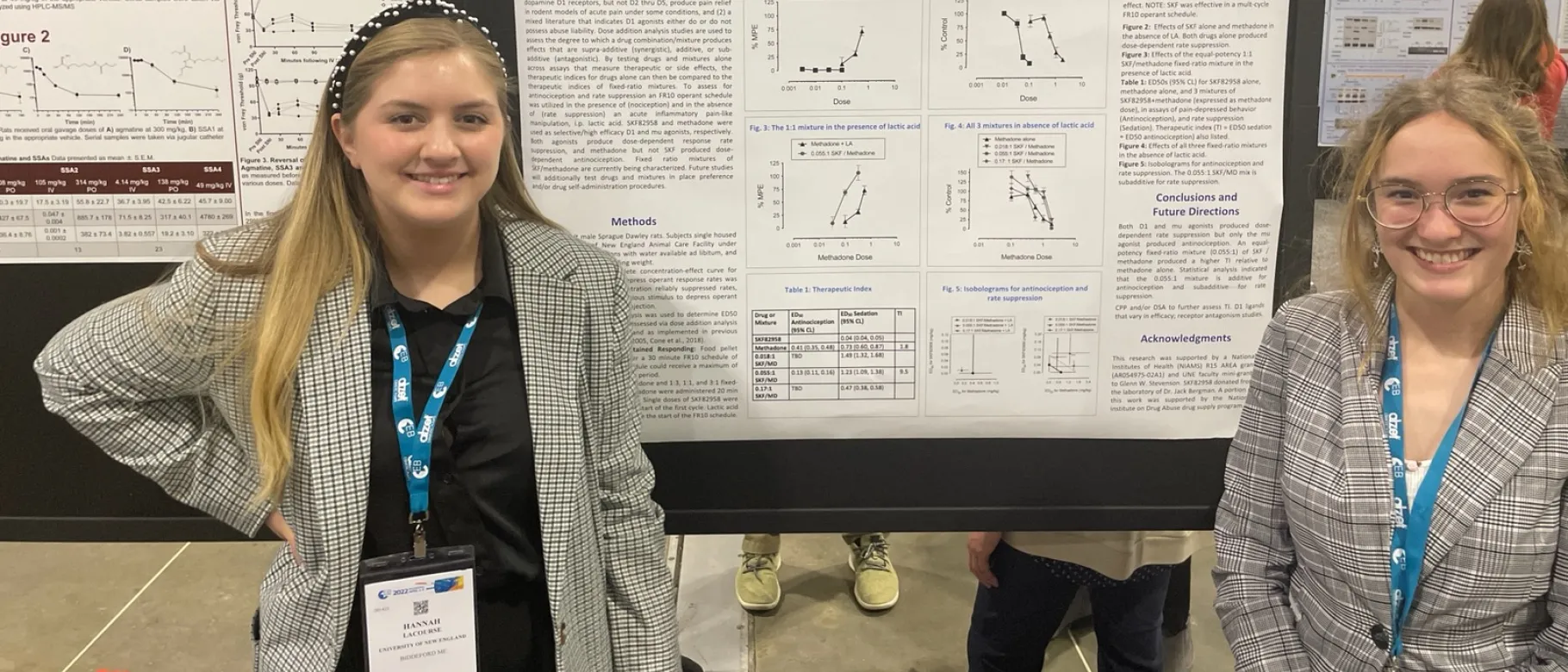Stevenson Lab students present at national pharmacology conference

Two students in the pharmacology lab of Glenn Stevenson, Ph.D., professor of psychology in the School of Social and Behavioral Sciences, recently presented a poster at the annual meeting of the American Society for Pharmacology and Experimental Therapeutics (ASPET) in Philadelphia.
First author Francesca Asmus (Neuroscience, ’22) and Hannah LaCourse (Medical Biology, ’23) — both full-time research assistants in Stevenson’s lab — presented their research on drug interactions at the Experimental Biology national meeting on April 4, with Asmus taking home second place in the national poster competition in the Behavioral Pharmacology category.
The students presented data on the interactions between D1 dopamine and mu opioid receptors on therapeutic (pain relief) and side effect (sedation/stereotypies) behavioral endpoints in rats using sophisticated operant conditioning protocols.
Results indicated that one of three fixed-ratio mixtures of the dopamine D1 drug SKF82958 plus the mu receptor drug methadone produced synergistic (super-additive) pain relieving effects and sub-additive or antagonistic side effects, showing an approximately 5-fold increase in safety profile relative to either drug alone.
“Our findings will be an exciting addition to the literature, as they suggest a new strategy for dopamine D1 drugs as novel standalone pain relievers or opioid-sparing pain relievers,” in other words reducing opioid side effects while maintaining strong pain relief, Stevenson remarked.
Additional undergraduate co-authors on the poster include Ravin Davis, B.S., ’21, (D.O., ’25), Lily Bennett (Dental Hygiene, ’25), and April Falstad (Medical Biology, ’25).
Collaborator and former Stevenson colleague Jack Bergman, Ph.D., professor of psychobiology at Harvard Medical School – McLean Hospital, provided the D1 receptor drug SKF82958.
Funding for all experiments was provided by a UNE College of Arts and Sciences mini grant to Stevenson. Funding for student travel was provided by UNE’s Center for Excellence in the Neurosciences with additional support from a Kahn neuroscience undergraduate summer research award to Asmus.